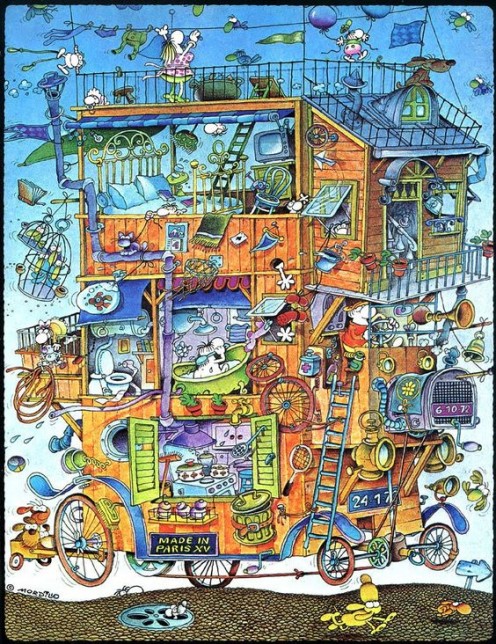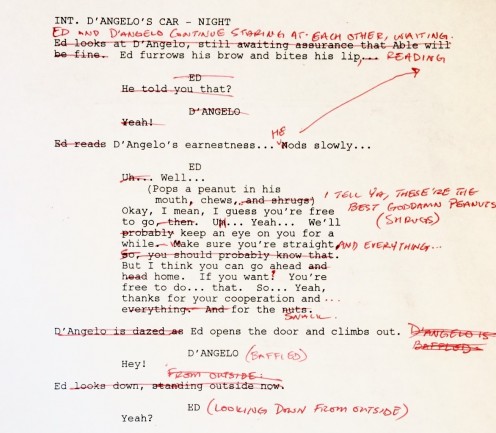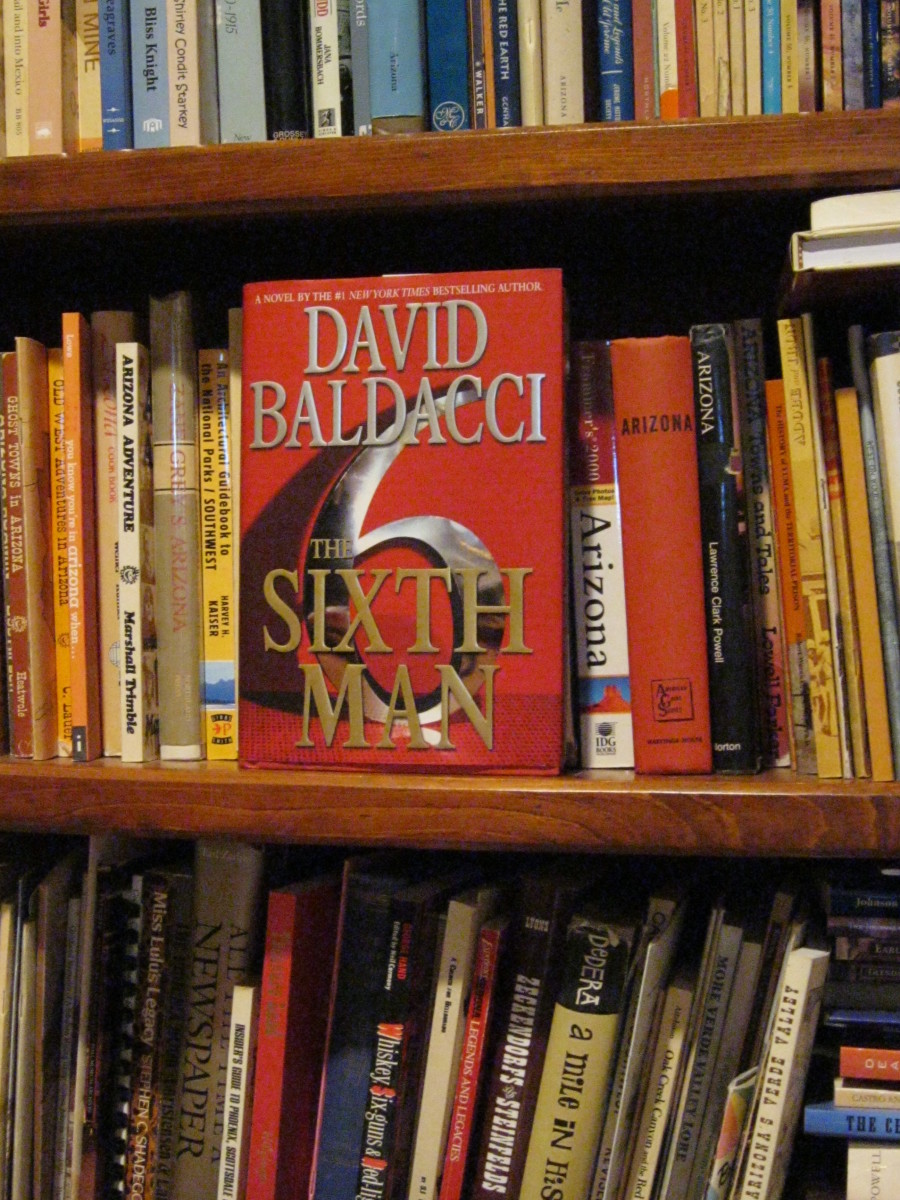How to Adapt a Novel to a Screenplay
What Is More Difficult - Creating a New Screenplay or Adapting a Story?
The question could also be of course what is easier and I must admit I can't say yet. This is because both is a huge fun for all who love to write and tell good stories. The key is to think in living pictures. So, I can only speak from my experience and hope you'll find it helpful.
How to Find the Right Story for Me and My Writing Abilities?

Respect the Copyright!
Please be aware that you can of course adapt any story or text to a screenplay as long as it is just an exercise to polish your writing ability. As long as you don't own the rights or have the permission to adapt a book or any other text you may not even show it to anyone else for a feedback.
Especially not to any publisher of the original, because you wrote without their permission and so they can indict you. This of course includes that you can't sell it. It is only an exercise.
How to Find the Right Story, Novel, Book for Your Adaption
Creating and writing a complete original screenplay of usually minimum 90, maximum 120 pages is a long process. I read a lot of specialists books and watched too many videos on how to write a script and how it has to be, how you have to plan it etc.. By this I got completely confused and didn't dare to try it. When I recognized that these feelings could be what those specialists want me to feel. So I decided to throw away all these books.
At the end it was me who had to write the story down and when I finally began without the confusing hints of successful screenwriters I could call about 10 short film scripts my own and this within 2 weeks. What I want to say is that you shouldn't think and read and listen too much or search too long about how to do it properly or best. Please, also avoid reading all these "10 mistakes to avoid" articles. Good stories happen every day and your own life is a fantastic source for your writing.
In case your mind is still a complete mess full of doubts and questions and it all feels like the chaotic look of Mordillo's beautiful house (see pic above) - relax! Yes really, please relax. The search and decision for the story you want to adapt is easy. Just look over all the novels, poems, theatre plays, songs and what ever you know. Choose your favorite book and take a short book for your beginning, not something that looks like Gone With The Wind.
Use what you know, like and feel good with!
Step 1: Read, Read, READ and read again.
To find the story you really love and would like to adapt you first have to read, read and read. Maybe you already know which novel you would like to adapt. Even then you must read it again and maybe even twice until you really know it. Usually each reading will open your eyes for new aspects of the story and this will sharpen your understanding for the story's structure.
Step 2: Begin to Write
The process of adapting begins with writing a summary. I suppose you want to adapt your favorite book to a feature screenplay. A feature usually has a length of 90-120 minutes - except your name is James Cameron or Quentin Tarantino (just to name a few). One page of your script will be one minute on the screen. Hence, your script should have a minimum of 90 pages and maximum 120 pages, usually 100-110 are fine.
With that said you either have to expand the story you want to adapt or to shorten it. Hence, write a brief summary and a detailed summary. These two will help you a) to bring the story to the point and b) to see which details are necessary to tell the story entertaining and exciting.
Don't Cross Your Bridges Before You Come To Them
A serious advice or suggestion: Don't talk about what you're creating. Just imagine you tell a friend about adapting this or that book. You will of course get comments and feedback that you don't want and don't need. Treat your writing like a seed that you put into the earth and now care for. Nobody can see it and nobody knows you put it there. Let it grow until it's strong enough to be shown.
Step 3: The Main Writing
There are of course many ways leading to Rome also when writing a story. For my first book adaption I chose an old English book for children that I love since the first moment I held it in my hands. My idea was that this must be easy to adapt as I already know it almost by heart. I read it again and discovered - as already described here above - that every step the protagonists make have a sense. Not a word is wasted. So I followed my first idea and wrote the whole book down in a screenplay formatting. I already knew the correct formatting, but wrote it as a word document which was more work than using a screenwriting program. I ended with over 250 pages or more. This of course is much too long. But, I had already written down a first draft and could work with it by rewriting it again and again until the story was still like the original and a proper feature script of 115 pages. This really is the long road, if you do it this way, but you learn a lot at least I did.
The other way is to write the already mentioned summary in a length of about 10 pages and then expand each page to 10 pages in the screenplay. Don't worry, the length will be build mainly by your dialogues because the formatting expands the text.
A third possibility to write an adapted screenplay is to write all dialogues of the original text first and then add the scene descriptions. By this you avoid using original descriptions that the script doesn't need which was the main mistake in my first adaption.
When your first draft is finished you should celebrate it and enjoy that you made it. But, right the next day you have to do your first re-writing. Start it with a spell, grammar and format check. As soon as this is done you should read it loud and correct the dialogue in a way that it matches not only the characters, their ages, their background etc. but also works on screen. Sometimes words don't have to be spoken out loud on screen, because a gesture or view already says it all.
Make Notes Before Re-Writing

Some Extras
Some extra hints in case you don't know it yet.
- Screenplays are always completely written in present tense. The picture above shows that sometimes the use of the gerund can shorten a scene description. See: "reading" instead of "Ed reads". Each shortening saves you space which can be a blessing when you figure out that 120 pages are not that much to tell a story in pictures and dialogues.
- Permissions for adaptions are usually given by the publisher or the writer's agent. Don't contact the writer and never mention that you have already written it. They won't be interested then. Further it's really unlikely they will give it to you as long as you don't have a couple of produced screenplays under your belt yet. On the other hand: You never know and anything is possible.
- Before you now think your country's film business and Hollywood must open its doors for you keep in mind that it needs about 5-10 written and polished feature screenplays before you really know how to write scripts for the big screen.
- Some aspiring writers think it must be easier to get a foot in the door at tv stations. Far from that as writing for tv is a whole new ball game.
- To become a produced screenwriter you can begin with short scripts and write for film students. Please do it for free as it's hard enough for them to find screenable low budget scripts. You will get the writer's credits and should remind them to list their film at imdb.com (the international movie databank). A profile and credits at imdb open the minds of producers and directors when you pitch a new script or apply for an assignment. In other words: You'll get more jobs.
- Never forget to register your screenplay and save your copyrights on your original scripts.
- But, forget the idea of registering your adapted script without having the permission, because by this you break the writer's and publisher's copyrights and will get in real trouble.
- Nevertheless I wish all who want to give it a shot good luck and hope you have fun and enjoy the creative process of adapting a novel to a screenplay.
Trust Your Inner Voice as a Camel is a Horse Designed by a Committee

© 2018 Elisabeth Meier






